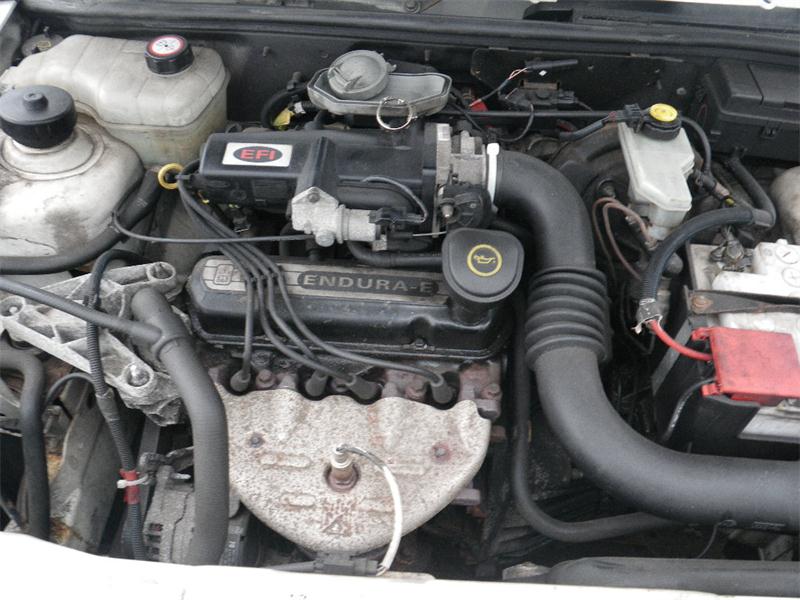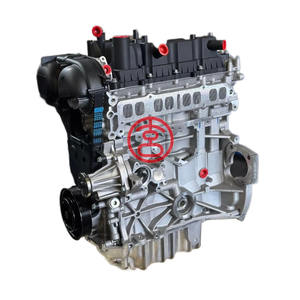Troubleshooting Ford Fiesta Engine Problems: What You Need to Know
Troubleshooting Ford Fiesta Engine Problems: What You Need to Know
Blog Article
Opening the Power of Engines: A Comprehensive Guide to Performance and Effectiveness
Comprehending the complex mechanics of engines is critical for both performance enthusiasts and daily drivers. By examining key metrics such as horsepower and torque, one can appreciate how tuning methods improve performance while attending to environmental problems. In addition, regular maintenance plays a pivotal duty in maintaining optimal efficiency gradually. As the vehicle landscape shifts towards electrification and advanced innovations, the concern develops: exactly how can we efficiently adapt to these adjustments while making best use of engine capabilities? The responses might redefine our method to engine efficiency and performance in manner ins which are both enlightening and essential.
Understanding Engine Fundamentals
What constitutes the basic auto mechanics of an engine? At its core, an engine is a machine designed to convert gas right into mechanical power with a series of regulated explosions or burning processes. The key elements consist of the cylinder, piston, crankshaft, camshaft, and valves. The cylinder functions as the chamber where burning takes place, while the piston moves within the cylinder to transform the power from combustion right into linear motion (ford fiesta engine).
The crankshaft then transforms this linear movement right into rotational power, which eventually powers the automobile. The camshaft regulates the opening and closing of the shutoffs, regulating the intake of air and gas and the expulsion of exhaust gases. Additionally, the engine relies upon a very carefully calibrated fuel-air mixture, ignition system, and cooling system to make sure optimum performance and efficiency.
Comprehending engine basics likewise entails recognizing the significance of engine cycles, such as the four-stroke cycle, which includes intake, power, exhaust, and compression strokes. Each phase is essential in guaranteeing the engine operates efficiently and properly. Proficiency of these fundamental technicians prepares for discovering extra intricate engine characteristics and performance metrics, important for enhancing both power outcome and performance.
Trick Performance Metrics
Key efficiency metrics are important for reviewing an engine's effectiveness and power output, providing useful understandings for both producers and customers. These metrics act as standards for engine performance, allowing for informed decisions in buying, manufacturing, and layout.
One of the key metrics is horse power, which measures the engine's capability to execute job over time. Torque, determined in pound-feet, is an additional critical statistics that indicates the engine's rotational force, straight affecting acceleration and pulling capability. Gas effectiveness, normally measured in miles per gallon (MPG) or liters per 100 kilometers (L/100km), assesses how efficiently the engine converts gas into movement, affecting operational costs and environmental considerations.
In addition, thermal efficiency measures just how well an engine transforms fuel energy right into useful job, disclosing understandings into energy losses mostly via warm. Discharge levels, consisting of carbon dioxide and NOx, are likewise essential, showing the engine's environmental impact and conformity with regulative standards.

Tuning Methods for Performance
Tuning techniques play a considerable function in improving engine performance by maximizing efficiency metrics recognized in earlier discussions (ford fiesta useful content engine). Various methods exist to tweak an engine, each contributing to boosted gas economic climate and minimized emissions
One effective technique is adjusting the air-fuel ratio, ensuring the engine operates within the optimal combustion regime. A leaner mixture can enhance gas efficiency, yet it must be stabilized to avoid misfires or engine knock. Furthermore, reprogramming the engine monitoring system can rectify specifications such as ignition timing, which additionally enhances efficiency while maintaining power result.
Another essential strategy entails customizing the intake and exhaust systems. Upgrading to high-performance air filters and exhaust headers can reduce back pressure, facilitating far better air movement. This enables the engine to breathe even more freely, resulting in improved combustion efficiency.
In addition, the application of advanced tuning tools, like dyno screening, supplies accurate information that allows targeted adjustments. Consistently monitoring these efficiency metrics ensures that adjusting initiatives yield the wanted effectiveness results. Jointly, these methods not just boost engine performance however also add to long-lasting sustainability in engine procedures.
Maintenance for Optimum Performance
Normal engine maintenance is important for accomplishing optimal performance and long life. A well-maintained engine not only runs effectively however likewise decreases the danger of pricey repairs and breakdowns. Secret components calling for regular interest consist of oil, filters, belts, and ignition system.
Transforming the engine oil at recommended periods is vital, as oil lubes relocating parts and stops getting too hot. Similarly, changing oil and air filters ensures that pollutants do not harm engine feature. Ignoring these parts can check these guys out lead to decreased effectiveness and possible engine damages.
Additionally, checking and changing used belts and hoses is important to stop abrupt failures. Timing belts, in specific, must be changed according to the supplier's routine to avoid Get More Info disastrous engine damage.
Spark plugs should also be checked and replaced as required, given that they play a crucial duty in ignition and gas effectiveness.
Future Trends in Engine Technology
Accepting innovations in technology, the future of engine style is positioned to reinvent performance and effectiveness across different applications. Among the most significant trends is the shift toward electrification. Crossbreed and totally electric powertrains are coming to be progressively traditional, supplying reduced emissions and boosted gas effectiveness. This shift is not simply a trend but a need driven by regulatory stress and customer demand for lasting remedies.
Moreover, technologies in materials science are leading to lighter, more powerful components that improve engine performance while minimizing energy intake. Advanced manufacturing strategies, such as 3D printing, permit the development of complicated geometries that boost air movement and thermal management, hence enhancing combustion procedures.
Furthermore, the integration of expert system and artificial intelligence is established to change engine diagnostics and performance adjusting. These technologies can examine large amounts of information in genuine time, enabling predictive upkeep and customized efficiency enhancements.
Verdict
In final thought, unlocking the power of engines calls for a complete understanding of their auto mechanics and performance metrics. Carrying out reliable adjusting methods and adhering to normal maintenance practices dramatically improve engine abilities.
Furthermore, the engine depends on a carefully adjusted fuel-air mixture, ignition system, and cooling system to make certain optimal efficiency and effectiveness.
Recognizing engine fundamentals also involves identifying the value of engine cycles, such as the four-stroke cycle, which consists of consumption, exhaust, power, and compression strokes. Proficiency of these basic auto mechanics lays the foundation for discovering much more complicated engine characteristics and efficiency metrics, essential for optimizing both power output and effectiveness.

Welcoming advancements in innovation, the future of engine style is poised to change performance and performance throughout various applications.
Report this page